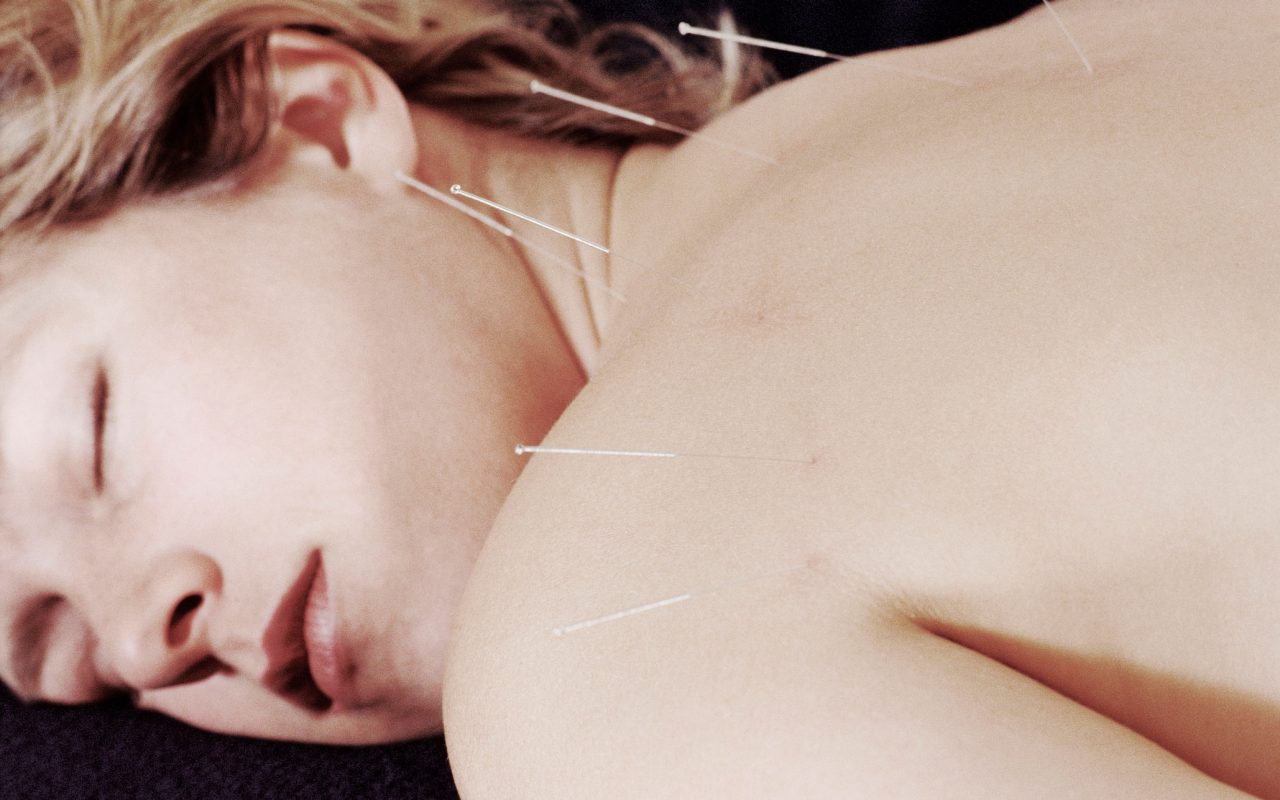Acupuncture for Menopause Symptoms

If non-drug relief from hot flashes and other symptoms of menopause sounds very attractive, the Chinese remedy may be worth a try. Here’s what you should know.
Menopause — and it’s precursor, perimenopause — can be highly unpleasant, bringing on hot flashes, insomnia, mood swings, and other symptoms.
Some women say that they get relief from acupuncture, in which you have flat, metallic needles inserted at traditional points on your body, sometimes including an electrical current. Weekly sessions were “like a miracle," for Jacqui Danilow, who says the severity of her hot flashes dropped from a 10 to 3 in four months.
It’s a very individual thing.
YOU MIGHT ALSO LIKE: Heart Disease Risk Increases Before Menopause
Don’t rule out HRT
The North American Menopause Society recommends hormone replacement therapy (HRT) for bad hot flashes and other symptoms, unless you have an estrogen-dependent cancer or heart disease.
You may have heard that HRT is a dangerous cancer risk for everyone, but that’s an in-depth discussion you should have with your gynecologist. HRT can tame menopause symptoms, while also improving your bone density and lowering your risk of bone breaks, colon cancer, and heart trouble.
If you’re looking for non-hormone options, the Society suggests the seizure and nerve drug gabapentin (Neurontin), cognitive behavioral therapy, antidepressants such as low-dose paroxetine (Paxil), along with weight loss.
The group specifically does not recommend acupuncture. That concern may not be Western bias. The practice was banned in China and Japan for decades. A well-designed randomized study in China included fake electroacupuncture at random points and tracked symptoms as well as changes in various blood measures. The study found no benefits at all over eight weeks.
Can acupuncture for menopause symptoms work?
If acupuncture does work for you, you’re most likely to need continued treatments. In one small study, for example, women who received two treatments a week for eight weeks saw an improvement in their sleep and mood. The benefit in mood was entirely a placebo effect; fake acupuncture did just as well for mood but not for sleep.
On both measures, the women still felt better eight weeks after the treatments ended. After 16 weeks, however, the benefits wore off.
Repeated visits may prompt a critique from friends and family that your benefits are “all in your head,” or “just a placebo.” There’s a simple response: “I feel better.” An effective placebo is effective.
In fact, in a study of breast cancer patients experiencing premature menopause with hot flashes, fake (sham) acupuncture produced more relief than Neurontin. Lead author Jun J. Mao, MD, a specialist in acupuncture at the Memorial Sloan Kettering Cancer Center, noted: “The placebo effect is often dismissed as noise, but these results suggest we should be taking a closer look at how we can best harness it.”
Placebo effects, however, tend to fade.
As is still the case with much of alternative medicine, more studies are needed before most physicians will suggest such treatment. Some women who fear HRT or like acupuncture become curious about Chinese herbal remedies for hot flashes. There is no evidence to back acupuncture up, however, and it’s possible you’ll experience gastrointestinal problems.
YOU MIGHT ALSO LIKE: Vitamins Women Should Take During Menopause
Updated:
December 18, 2023
Reviewed By:
Janet O’Dell, RN